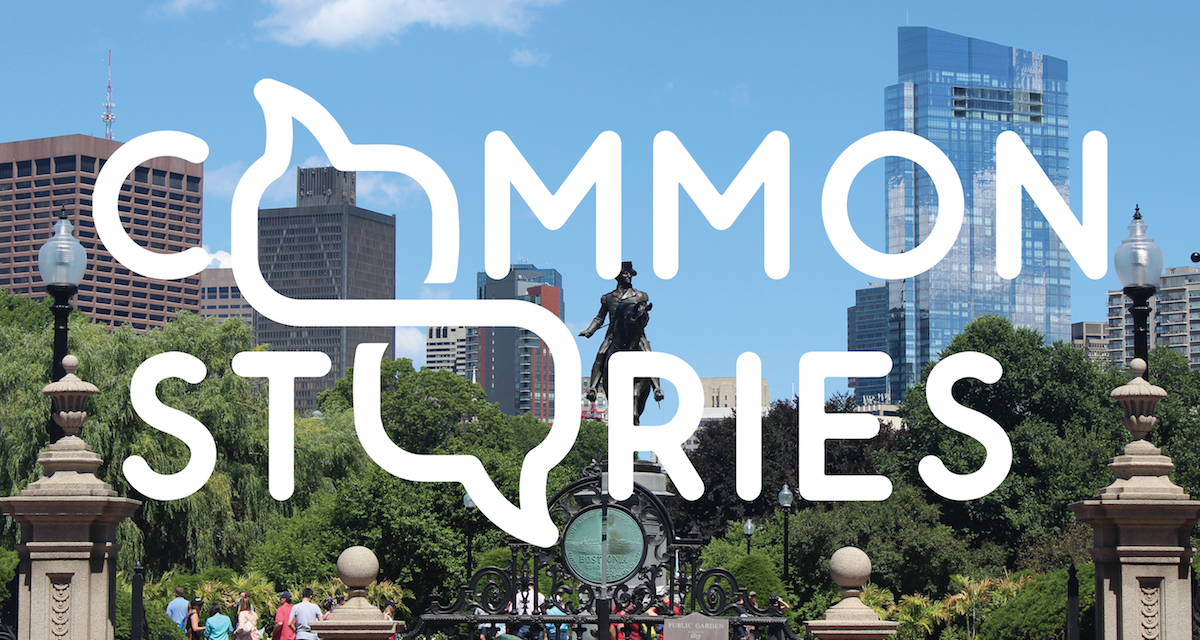Codifying the Contexts of Forgiveness
“We’re studying how people understand forgiveness, what factors shape their understanding, and how it might affect the other facets of their life,” says Carter Crossett ’19 of the summer research project, “Campus as Moral Community: Contextual Understandings of Forgiveness.”
He and Adila De Souza ’18, both double majors in biblical studies and psychology, are assisting Dr. Grace Chiou (communication arts) and Dr. Kaye Cook (psychology) to examine why and how individuals forgive.
“Everybody agrees that forgiveness is hard,” Dr. Cook says, but cultural and individual understandings of it can differ dramatically. To examine those differences, they’ve been conducting interviews, starting last semester with Gordon students and, this summer, at four local churches and on the Boston Common.
Much research on this topic has focused on defining forgiveness, says Dr. Cook. However, this project is different; they’re examining individual and group understandings of forgiveness, including experiences of it, beliefs about it and the influence of circumstances and factors such as type of relationship, gender and age.
They’re also studying the connections between religion and forgiveness, using data from interviews to answer questions like “Do people see forgiveness as something that benefits the community or the individual?” and “Do you consider forgiveness a religious act or not?”
The research team has coded the interviews, with help from Peiru Chen ’19, a psychology and biology double major, and will communicate their findings in two academic papers. Earlier in the summer, they gave a presentation for the Society for Values in Higher Education.
These contributions are significant for the academic field, but the team is also exhibiting their research in a more immediate format: a blog called Common Stories, which is still under construction, where De Souza and Carter will post stories and photos from their Boston Common interviews to share subjects’ experiences of forgiveness.
It’s an unusual topic for social media, which is not typically “a place for forgiveness,” says Dr. Chiou. Rather, it’s a place where “you put yourself out in a very positive light.” That highly positive “presentation of the self might be a barrier to this larger discourse on forgiveness,” she says. It’s “a very common idea,” she observes, “that forgiveness is a choice that we make” rather than a responsibility we must fulfill.
Although forgiveness may often be understood as optional, sometimes it’s simply overlooked. In one interview at Gordon, participants observed that on social media, people may discuss reconciliation or “making amends, but they never talk about forgiving” in that context, says De Souza.
That’s why their blog has a clear focus: “We’re not talking about reconciliation; we’re not talking about building bridges. We’re talking about forgiveness,” she says.
These records are a way to give back to the community, De Souza says, and to “show them what we’ve learned and how to keep this dialogue open. We’re all aware that we’re not going to change this culture in social media right now, but at least it’s a place where we can start to talk.”
Forgiveness is “central to healthy community function,” Dr. Cook says. “It’s worth our sponsoring conversation, in every context we can, on campus and off.”
Follow Common Stories on Instagram >
Article by Morgan Clayton ’19, history
 The Bell
The Bell
